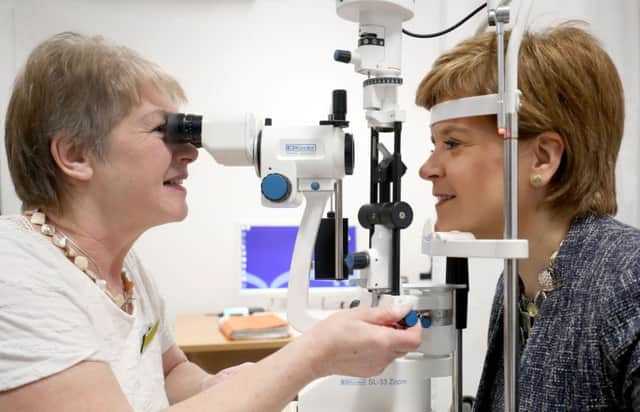Scottish nurses have had to donate sanitary products to patients


Nurses have had to donate their own sanitary products to patients or run errands to local shops to buy them, new research has revealed.
An investigation by Scottish Labour MSP Monica Lennon found that no health board in Scotland has a policy on the provision of sanitary products to hospital in-patients.
Advertisement
Hide AdAdvertisement
Hide AdMs Lennon, who has campaigned against period poverty and is pursuing legal rights to sanitary protection through the introduction of a Member’s Bill, submitted Freedom of Information requests to 14 regional health boards asking about individual policies regarding the provision on sanitary products.
In some cases, the research found that nurses are expected to take on the responsibility of providing sanitary products to patients.
NHS Dumfries and Galloway confirmed that in situations of immediate need “nurses would help by providing from their personal supplies” or “if necessary nurses will run into town – either using petty cash or the patient pays for it”.
Despite several health boards stating that sanitary products can be provided to patients on demand by asking ward staff, there is no formal process for doing so.
Others admitted that no products were supplied on general wards and in some cases alternatives such as incontinence products would need to be provided.
In general, the responses placed an expectation on patients who experience menstrual or menopausal bleeding to bring their own sanitary protection products, ask family and carers to supply them or purchase them from the hospital shop – with nurses expected to help in emergency situations.
Monica Lennon, shadow cabinet secretary for communities, social security and equalities said: “Not a single health board in Scotland has a policy in place to meet the menstrual care needs of hospital in-patients. Access to sanitary products is fundamental to human dignity, health and wellbeing, so this is unacceptable and must change.”
Health secretary Shona Robison said: “We would expect boards to provide sanitary products to all those in hospital who need them as it is unacceptable that anyone in Scotland should be unable to access these items.”